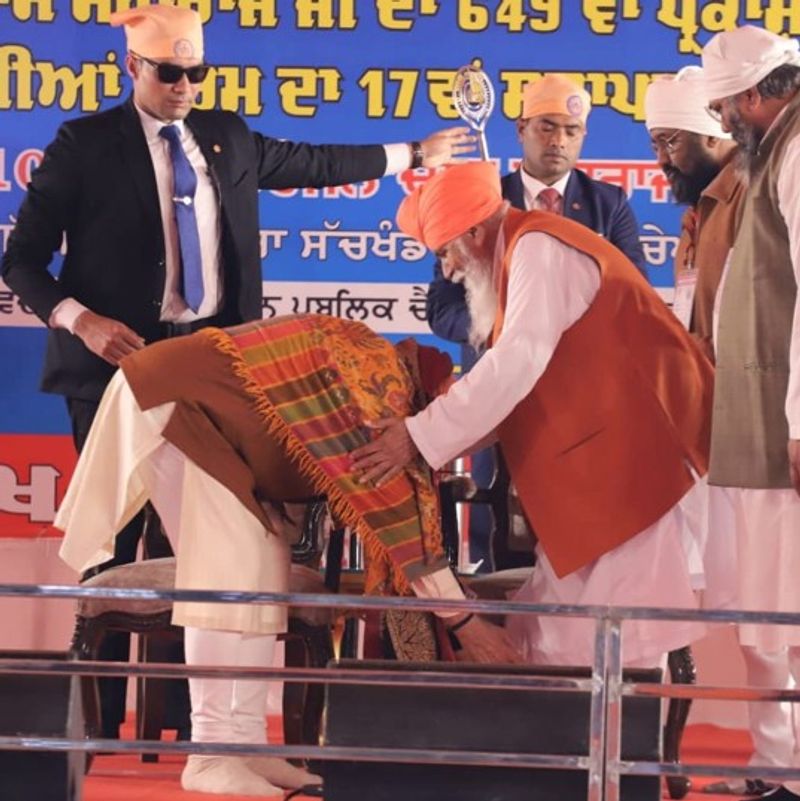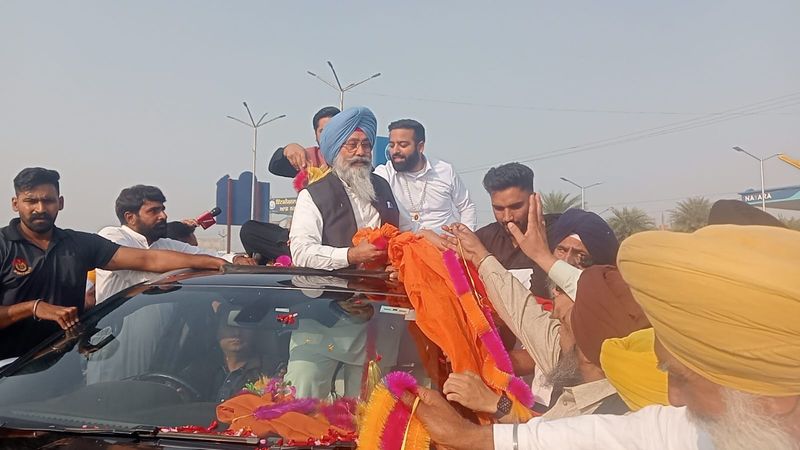Listen To This Post
Tarn Taran: Ruling Aam Aadmi Party (AAP) candidate Harmeet Singh Sandhu won the Tarn Taran Assembly by-election on Tuesday by a decisive margin of 12,091 votes, reaffirming the party’s hold over the border constituency. Sandhu secured 42,649 votes, defeating Shiromani Akali Dal (SAD) candidate Sukhvinder Kaur Randhawa, who garnered 30,558 votes.
Independent candidate Mandeep Singh finished third with 19,620 votes, followed by Congress’s Karanbir Singh Burj, who received 15,078 votes. The BJP’s Harjeet Singh Sandhu finished a distant fifth with 6,239 votes. A total of 15 candidates were in the fray.
BJP’s Aggressive Campaign Fails to Move Voters
The result is a setback for the BJP, which had mounted a high-voltage campaign led by union ministers and two chief ministers — union ministers Manohar Lal Khattar,Ravneet Singh Bittu and Delhi CM Rekha Gupta and Haryana CM Nayab Singh Saini, along with senior state and national leadership. Despite the push, the party failed to make an impact at the grassroots in this strongly Panthic constituency.
A senior BJP leader, attempting to strike an optimistic tone, said: “It is a Panthic seat and we had no dedicated BJP team in the area. We pulled on. Our real target is 2027. The bypoll was meant to assess our ground and gauge how many votes we can gain.”
‘Vote Share Has Increased, But Result Below Expectations’: BJP Leadership
State general secretary Anil Sarin acknowledged the gap between campaign visibility and electoral outcome. “No doubt our vote share has increased manifold compared to 2022, but the result is below expectations. The response we got could not be converted into votes. Yet, we received wide acceptance in villages and towns — something unimaginable in 2022. We will introspect once full results are compiled and will work to convert this goodwill into votes by 2027.”
This was the first time the BJP contested Tarn Taran alone after the Shiromani Akali Dal ended its alliance with the NDA over the repealed farm laws. In the 2022 Assembly polls, BJP candidate Navreet Singh Shafipura had polled just 1,176 votes, finishing sixth.
The Tarn Taran result marks the end of a trend seen in nine bypolls since June 2022, where the BJP had consistently outperformed the SAD. However, in Tarn Taran, SAD reclaimed the second position while the BJP slipped to fifth.
Despite this, the BJP points to rising vote share as a positive sign. In 2022, contesting alongside the Punjab Lok Congress (PLC) and SAD (Sanyukt), the BJP’s standalone vote share was barely 6.6%. Since then, the BJP has been allowed to contest independently with greater organisational confidence, though results remain uneven. Senior BJP insiders admit that Tarn Taran is a wake-up call: “Coming second or third won’t cut it anymore. Here, we even lost the security deposit. Structural overhauls, cadre-building and clearer strategy are essential before 2027.”
Panthic Pulse of the Constituency
Tarn Taran occupies a special place in Punjab’s political landscape, and its voting behaviour reflects deep-rooted religious, historical and sociocultural factors.
A Strong Panthic Identity
Tarn Taran is a constituency where identity, history and local leadership matter more than national narratives. AAP’s grassroots work and SAD’s traditional roots still dominate, while BJP continues its uphill attempt to carve out an independent space. Tarn Taran is one of Punjab’s most intensely Panthic (Sikh religious) belts.
This means:
- Voters respond strongly to issues linked with Sikh identity.
- Traditional Sikh political parties like SAD have historically held influence.
- BJP’s Hindutva-aligned politics often finds limited resonance unless strong local alliances or Sikh faces offset perceptions.
Rural Dominance and Local Leadership
The constituency is overwhelmingly rural, where:
- Personal networks of village leaders matter more than party machinery.
- AAP has cultivated a strong panchayat-level presence since 2022.
- Congress and SAD retain pockets of loyalty based on long-term family and factional ties.
Anti-Centre Sentiment Post-Farm Laws
While the farm-laws agitation ended in 2021, the emotional imprint remains strong in border districts:
- Many farmers associate the BJP with the controversial farm laws.
- The break between SAD and BJP continues to influence voting patterns.
- Tarn Taran, being close to the border, is highly sensitive to “Delhi vs Punjab” narratives.
AAP’s Organisational Advantage
- Deployed MLAs and organisational teams into villages.
- Relied on welfare governance branding (schools, health, electricity).
- Gained cross-caste support among youth and women voters.
BJP’s Structural Vacuum in the Region
Once dependent on SAD’s ground network, the BJP now faces:
- Organisational gaps
- Weak cadre presence
- Difficulty in mobilising Panthic voters
- Lack of local Sikh faces with mass connect
Vote Tally
| Candidate / Party | Votes Secured | Position |
| Harmeet Singh Sandhu (AAP) | 42,649 | 1st |
| Sukhvinder Kaur Randhawa (SAD) | 30,558 | 2nd |
| Mandeep Singh (Independent) | 19,620 | 3rd |
| Karanbir Singh Burj (Congress) | 15,078 | 4th |
| Harjeet Singh Sandhu (BJP) | 6,239 | 5th |















